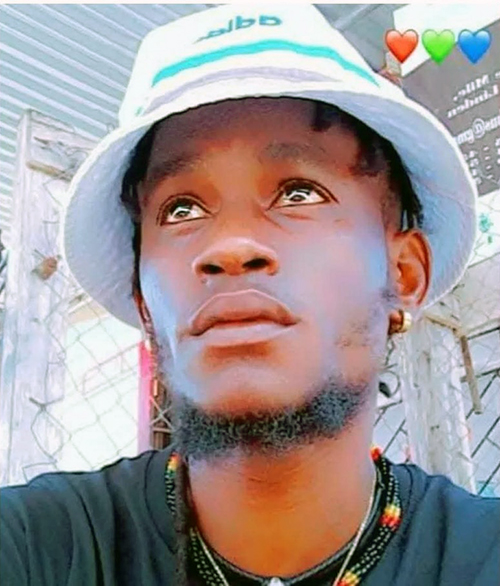As of mid-August 2025, no charges have been filed in the fatal shooting of 32-year-old Keon Fogenay—an incident that occurred during protests in Linden in April. Fogenay, a bystander, was struck in the eye by live ammunition during unrest triggered by the killing of fellow Lindener Ronaldo Peters by police. Despite eyewitness testimony, body-camera video, and even the identity of the officer allegedly responsible, no murder charge has been brought against any police officer in Fogenay’s case. (Stabroek News | hgptv.com)
A Promise Unfulfilled
Political leaders offered reassurances of accountability following the double tragedy. Vice President Bharrat Jagdeo insisted there would be “no cover-up” and promised that a full, impartial investigation would determine consequences. (News Room Guyana)
Meanwhile, the Alliance For Change (AFC) pressed for immediate prosecution in Fogenay’s case—citing evidence already in the hands of the Office of Professional Responsibility (OPR) and calling for a civilian police oversight authority. (Stabroek News | Kaieteur News | hgptv.com
A respected local attorney, Dr Dexter Todd, has been supporting the families and facilitating witness statements submitted to the Regional Security System (RSS), the body tasked with leading the investigation. Still, weeks later, the Fogenay family remains without justice. (Kaieteur News)
Why Are Residents of Linden Seemingly Silent?
It’s not so much that Lindeners are silent—media reports and local activism tell a different story. In the days following the killings, the town erupted:
• Residents confronted police at the Wismar–Mackenzie Bridge with fierce protests, blocking roads and hurling debris. Their anger was stoked by what they saw as police aggression against “boys” who were merely in the wrong place at the wrong time. (Kaieteur News)
• Political leaders, including the Mayor and representatives from APNU, publicly condemned the killings, denouncing excessive force and calling for justice. (Kaieteur News)
• NGOs like the Institute for Action Against Discrimination (IFAAD) called the deaths part of a broader, systemic pattern of state violence and impunity. They demanded immediate, independent, and transparent investigations—not just for Keon Fogenay and Ronaldo Peters, but also for other unresolved tragedies. (Village Voice News)
So, rather than silence, there has been open, visceral public outrage. Perhaps your observation refers to a quieter moment that has since passed—but the broader response has been far from muted.
Why Does the Government Seem Comfortable with Denying Justice?
The failure to bring charges in Fogenay’s case, even amid credible evidence, raises disturbing questions about the culture of impunity within the Guyana Police Force—and the political structures that enable it:
• A pattern of inaction in police-involved deaths runs deep in Guyana. Previous tragedies—such as the 2012 killings during protests in Linden, or the 2020 murders of the Henry boys—resulted in little or no prosecution, despite public outcry. (Village Voice News)
• Human rights groups like the Guyana Human Rights Association (GHRA) have criticised the centralised and politicised nature of the police hierarchy, noting that oversight mechanisms (such as a Police Service Commission or civilian complaints boards) are moribund or nonexistent. (Kaieteur News | Village Voice News)
• Corruption and lack of accountability are systemic, with low scores in global corruption indices and reports that the procurement processes within the GPF remain plagued by irregularities. (Wikipedia)
In effect, the failure to pursue justice for Fogenay appears to be part of a much larger structural failure—where the GPF functions as an extension of political power rather than an independent, community-serving institution.
Are the Police Allowed to Kill Guyanese Without Being Charged?
Tragically, the evidence suggests this happens all too often. Since at least 2012, several police-shooting deaths—including those of young Linden residents—have gone unresolved or unprosecuted. The killing of #KeonFogenay arguably continues this pattern, underscoring a dangerous gap in accountability:
• And yes—you read that right: even with credible evidence such as video footage, eyewitness testimony, and a known suspect, no charges may be filed. That raises legitimate alarm about whether police officers feel they are above the law, and whether the system is deliberately—or passively—allowing lethal force without consequences.
Let’s Gyaff
This is not simply a matter of bureaucratic delay or legal complexity. It’s about:
1. Broken promises of impartial investigations and “no cover-ups” that go unfulfilled.
2. Active civic engagement in Linden—by residents, leaders, and NGOs—demanding justice.
3. Systemic failure of police reform, oversight, and accountability.
4. Entrenched patterns of impunity that allow security forces to kill with near impunity.


